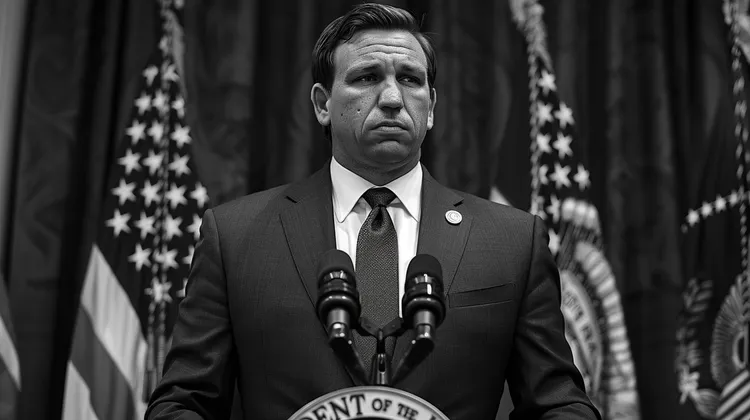
DeSantis Withdraws from Presidential Race
In an unexpected turn of events, Florida Governor Ron DeSantis, a vocal advocate against Central Bank Digital Currencies (CBDCs), has announced his withdrawal from the US presidential race. The move has sent shockwaves through the political landscape, stirring up discussions regarding the future of digital currency regulation in the United States.
DeSantis, a rising star within the Republican Party, has long positioned himself as a staunch opponent of CBDCs. He has often argued that such digital currencies would lead to an erosion of American financial privacy and grant excessive control to the Federal Reserve. His campaign frequently cautioned against the potential overreach of government power that a federally controlled digital currency could entail.
Throughout his campaign, DeSantis championed traditional monetary policies and emphasized the importance of maintaining the integrity of the US dollar as the world’s reserve currency. His platform included efforts to safeguard the personal financial data of citizens and resist what he described as “the encroachment of Big Government into the wallets of Americans.”
Political analysts had considered DeSantis a strong contender for the Republican nomination, with substantial support from conservative voters who appreciated his hardline stance on economic independence and privacy concerns. His departure from the race removes a significant voice in the ongoing debate about the adoption of CBDCs in the country.
His announcement came during a press conference in which DeSantis cited personal reasons for his decision to withdraw from the presidential race. “After much reflection and conversations with my family, I have decided that my work in Florida is not yet done, and the fight for our citizens’ freedoms continues on a different front,” DeSantis stated, suggesting his tenure in Florida politics was far from over.
DeSantis’ exit has significant implications for the future landscape of the presidential race, as well as the direction of the Republican Party’s stance on digital currencies and financial privacy. His position against CBDCs had been a touchstone for privacy advocates and those wary of centralized digital monetary systems. With his influence in the presidential debate diminished, the door is now open for other candidates to shape the party’s viewpoint on the issue.
While some candidates may adopt portions of his stance to appeal to his base, others may see an opportunity to position themselves as more open to the exploration of emerging financial technologies like CBDCs. This could lead to a more nuanced discourse among Republicans regarding the balance between financial innovation and personal privacy.
Beyond the primaries, DeSantis’ absence from the race also affects the national dialogue on CBDCs, with his outspoken position having raised public awareness about the complex implications of digital currencies. Advocates for CBDCs argue that they can increase the efficiency of monetary policy, reduce transaction costs, and provide financial services to the unbanked.
Critics echo DeSantis’ concerns about privacy risks and the potential for surveillance. They worry that a CBDC could centralize financial records and give governments unprecedented access to transaction data, posing challenges for civil liberties and personal freedoms.
The broader financial sector has been monitoring the progress of CBDCs worldwide, with numerous countries exploring or implementing their own digital currencies. The debate in the United States has been particularly focused on how such a development might affect global finance and the predominance of the US dollar.
In the wake of DeSantis’ departure, questions linger about how the Federal Reserve and other regulatory bodies will approach the subject of CBDCs. The balance they strike between innovation and regulation will be crucial in determining the direction of the US monetary system.
Ron DeSantis’ withdrawal serves as a pivotal moment in the ongoing conversation about the future of money, privacy, and the role of government in the rapidly evolving digital landscape. His advocacy against CBDCs has left an indelible mark, and his absence in the presidential race shifts the dynamics of this critical debate as the United States grapples with the complexities of the new digital frontier.
One thought on “DeSantis Withdraws from Presidential Race”
Leave a Reply
You must be logged in to post a comment.
There’s a lot at stake with CBDCs, glad to see the conversation is heating up.